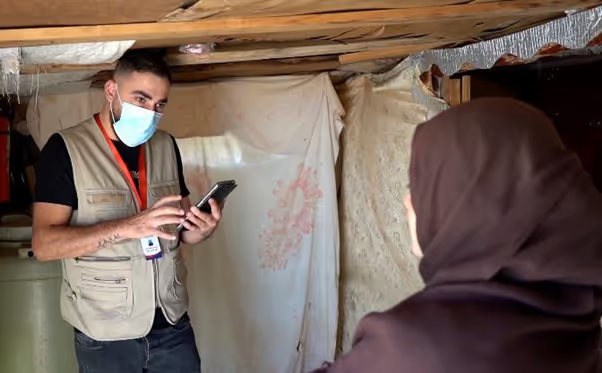Impact Case Study: Reducing the spread of COVID-19 by tracking community perceptions

Background
Understanding community perceptions is key to reducing disease spread in humanitarian settings, yet few tools systematically capture real-time, longitudinal data. The Community Perceptions Tracker (CPT) was developed to address this gap, enabling adaptive public health responses. First piloted during the 2018–2019 Ebola outbreak in the Democratic Republic of Congo, it proved effective in improving outbreak response efforts.
The study
This study evaluated the feasibility of using the CPT tool during the COVID-19 pandemic in two emergency response settings in Lebanon and Zimbabwe, assessing whether its use meant that COVID-19 response programmes were seen as relevant and acceptable by members of the affected communities. It explored how the CPT could support humanitarian organisations in adapting and improving their interventions, particularly in community engagement and behaviour change efforts. By systematically tracking community perceptions over time, the study aimed to determine whether the tool could provide more structured and actionable insights compared to traditional, ad hoc feedback mechanisms.
Its success was driven by strong demand for structured perception tracking, a successful global pilot reinforcing its value, and research leads facilitating learning and engagement.
Findings and impact
- Helped humanitarian organisations adapt interventions, leading to practical changes such as tweaking COVID-19 messaging, covering transport to vaccination centres and modifying hygiene kits.
- Contributed to continued use of the tool in other outbreaks and expansion beyond the study countries.
- Strengthened local research capacity and reinforced the importance of centring community voices in humanitarian action.
Lessons learnt
- Respond to external need and sector interest
- The value of organisational ‘champions’ for new interventions
Partners
Action Against Hunger (AAH), Africa Ahead, Oxfam, London School of Hygiene and Tropical Medicine
Methodology
R2HC captures detailed case studies through a process that triangulates and validates evidence on uptake and impact. The case study methodology and full version of this summary case study including references are available on request. Outputs and resources from this study are available on the project page.